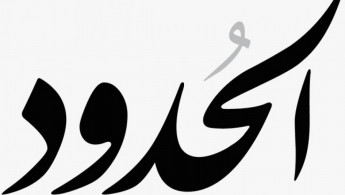Questions remain over Jordan's 'surprising' block of satirical website al-Hudood
Jordanian authorities blocked the popular Middle East-focused satire website, al-Hudood, last week for unknown reasons in what activists call a new step in Jordan’s ongoing muzzling of civil society.
Al Hudood, founded in Jordan a decade ago but moved to the UK in 2015, is notorious for its self-described "equal opportunity" political satire leaving no country spared.
The website is published in Arabic and is a rarity in a region which regularly targets journalists and activists for real or perceived criticisms of leaders.
Despite its biting satire, the website is only banned in the UAE and now, Jordan.
"We were surprised since they could have done it in the last ten years. If they're blocking us and we are a satire publication, then it’s very much a slippery slope," a source from Al-Hudood, who preferred not to be named, told The New Arab.
The source said they were unsure of what exactly led to the website's censure, but that perhaps their coverage of Crown Prince Hussein's royal wedding or the leaked Pandora Papers, was behind the ban.
The Pandora Papers revealed that Jordan's King Abdullah II had spent well over US$100 million on real estate.
Jordan has regularly blocked news websites or issued gag orders in local media on certain issues but has largely left satire and entertainment platforms alone.
"This is part of a long chain of assaults on freedom of opinion and expression. This is a new blow to Jordan’s reputation with regard to freedom. Satire is accepted everywhere else in the world," Ahmad Hasan al-Zoubi, a Jordanian satirist and playwright who has been prosecuted for his work, told TNA.
International rights organisations have noted a steady erosion of civil space in Jordan in recent years, which Freedom House downgrading Jordan from "Partly Free" to "Not Free" in 2021 for its crackdown on labour unions.
In September 2021, Human Rights Watch warned that Jordanian authorities have stepped up harassment and persecution of journalists, activists and human rights organisations.
"The authorities are now getting really crazy in trying to silence voices, even independent media in Jordan are suffering and are self-censoring. The civic space is shrinking," Mohammad Shamma, the Jordan correspondent for Reporters without Borders (RSF), told TNA.
The Jordanian government uses a variety of charges to silence dissent, including the cybercrime law, which carries a potential prison sentence for online posts that are false or cause "damage" to others.
Jordan also has lyse majeste laws, which criminalise any speech deemed offensive to the king and the royal family.
Some recent, prominent cases include the imprisonment of an activist who requested information about the wealth of King Abdullah II as well as a woman who said she loved her father more than the king.
بعد مرور شهر على عرس أمير الأردن حسين بن عبدالله الثاني، حَجبت السلطات موقع «شبكة الحدود» من دون توضيحٍ أو تصريح. المُتوقّع أن سبب الحجب يعود إلى المحتوى الساخر الذي نشرته «الحدود» بالتزامن مع العرس، وهو محتوى تعيد ميغافون نشره هنا.
— Megaphone (@megaphone_news) July 5, 2023
يُشار إلى أن السلطات الأردنية تُمارس رقابةً… pic.twitter.com/v8Wlpx93ba
'Equal opportunity' satire
Satire is often employed in the Middle East to criticise policies or social norms, drawing on the double entendre of humour to create plausible deniability that dissent was ever expressed.
However, "the problem in the region is that there, unfortunately, aren't many equal opportunity satirists," the source from Al-Hudood said, explaining that satirists often avoid criticising the countries they reside in or are funded by.
Al-Hudood is one of the few outlets that leaves no country spared, the authors of its irreverent headlines protected by the lack of published bylines.
Some of their recent headlines include: "Meet the two presidential candidates that will not end the presidential vacuum in Lebanon," and "Jordan invoices UAE for extradited dissent."
The website's audience is wide-ranging, from intellectuals and journalists to a casual readership on social media.
"What we want to do is create an exposure to irreverence. We like to think of what we are doing as an exemplification of what it could look like if people could say what they wanted," the source said.
Though there are workarounds to access the website in Jordan, such as the use of a Virtual Private Network (VPN), the deplatforming could limit its reach to a wider audience.
"Whoever is going through a VPN is not the general audience. For most people, they're not going to be exposed, and it’s important to have that exposure to irreverence," the source said.
The space for civil expression in Jordan grew after the 2011 Arab protests, but authorities have been gradually rolling back these freedoms to pre-protest levels.
"In 2011, no one said anything about the king at home with their family, just in case. We don't have that anymore, but we are heading closer and closer to becoming more authoritarian," the source said.





 Follow the Middle East's top stories in English at The New Arab on Google News
Follow the Middle East's top stories in English at The New Arab on Google News


